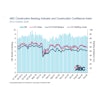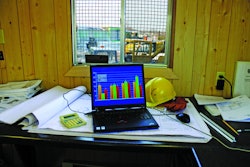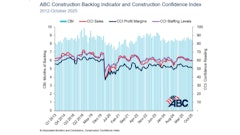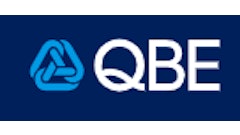I spend the bulk of my time in the construction equipment industry and, as a result, listen to numerous industry reports dealing with its past, present and future, which of course parallel your industry. Clearly, 2011 was a strange year. I don't believe much was expected in terms of new construction work, and those that took that approach overall were correct.
So in general terms, there was not much recovery in 2011. On the other hand, there were certain niche markets that did well throughout 2011 and will continue to do so in 2012. If you service such markets, your job will be to keep your slice of the market in your area.
Expect More of the Same
When you add comments from the industry analysts on top of Federal Reserve Chairman Ben Bernanke's prediction for 2012, I think we can expect mid-single-digit growth; stable interest rates; and higher prices. These expectations apply to your business as well as the overall economy.
To be more specific about your business, I can say:
- The equipment market will continue to be tight.
- The ability to finance construction equipment will remain constant.
- Financing rates will be in the 5% to 6% range, if you qualify.
- Rental rates are going up and equipment will be harder to obtain when you need it.
- Banks will continue to avoid your industry.
- The value of used equipment is very good right now.
In short, look forward to another year similar to 2011. If I had to guess, that means bids will still be tight and costs will continue to increase. To break even in this situation, you have to generate more work with sufficient margin to offset cost increases; be able to pass on those increased costs; or become more efficient in your current operation. It's probably best to take a shot at all three.
Compile 2011 Numbers ASAP
To get a handle on 2012, you need to know how you did in 2011. That means get the books closed as soon as possible. You can start now to get accounts in order, then do a quick preliminary close and use the data to do your homework for 2012.
Another reason you want this data is to get a handle on your tax situation. If you can get estimated 2011 financial data put together now, there may be things you can do before December 31, 2011, to put your business in a more favorable tax position. This is important because the book income or loss may not be the tax income or loss. To assume you have zero taxable income because of book numbers is sure to bite you in the butt if it hasn't already.
Before we go further, I want to stress how important it is to study your balance sheet as well as your income statement. Your balance sheet tells you your financial position at a point in time. Your assets are on the left side with liabilities and equity on the right. An equity position of at least 30% of assets is pretty standard for most industries.
So sit down with the balance sheet and determine what accounts get combined to come up with the figure that appears on the sheet. Then ask yourself: "What's in here... and is it going to convert to cash?" The detail for each account needs to be there. If it's not, take steps to find out why.
Also make sure you understand the nature and terms of all liabilities, including the loans and notes payable. Again, make sure the detail backs up the balance.
After you review the balance sheet and are fairly certain the figures are in the ballpark, take another look at the equity balance to see if you have that 30% of assets available as a cushion to run the business. That cushion accounts for the timing differences between cash coming in and cash going out, because we all know it takes longer to collect compared to when bills need paying. If for some reason the amount of liabilities reduces that cushion to below 30%, you probably have a cash situation to deal with.
Follow the same procedure with the income statement. Know what makes up the income line, the cost of sales accounts, occupancy cost and administrative costs. Pay particular attention to all the different payroll costs; compare them to the year before by person (if practical) and in total. Review each expense line, compare it to the prior year and, if necessary, call and get a quote for the current year. Cut what you can as soon as you can.
Another tip is to meet with your primary equipment rental house to get fixed rates for 2012. What they will expect in return is loyalty (first call) and communication, and that you to follow reservation and call-off procedures and make payments according to what you work out.
It is your business and you have to control it. The best business operators I know take an active interest in the billing, collecting and bill paying.




















